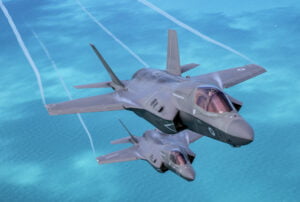Shaping Leaders at Britannia Royal Naval College: A Journey through Officer Training
Introduction
The Britannia Royal Naval College (BRNC), located in Dartmouth, Devon, stands as a beacon of excellence in the world of naval officer training. For over a century, this historic institution has played a pivotal role in shaping the leaders of the Royal Navy. In this article, we will explore the journey of officer training at BRNC, where future naval officers are molded into the finest and most capable leaders of the sea.
The Genesis of BRNC
Founded in 1905, BRNC was established to consolidate the training of naval officers, providing them with a well-rounded education, instilling naval traditions, and nurturing leadership skills. It has remained the primary officer training institution for the Royal Navy ever since.
Entering BRNC
Prospective naval officers enter BRNC after a rigorous selection process. This process assesses candidates for qualities such as leadership potential, physical fitness, academic ability, and a commitment to serve the Royal Navy. Once accepted, candidates embark on an intensive training program that spans several months.
Officer Training Phases at BRNC
The officer training journey at BRNC is divided into several key phases, each designed to build upon the knowledge and skills necessary for naval leadership.
1. Initial Naval Training: The first stage introduces cadets to naval life and customs. It emphasizes discipline, teamwork, and physical fitness. Cadets undergo physical training and participate in various team-building activities.
2. Academic Training: Naval officers must possess a broad knowledge base. Cadets receive instruction in naval history, maritime warfare, navigation, and leadership theory. These subjects form the intellectual foundation of a naval officer’s education.
3. Practical Seamanship: Practical seamanship training is at the heart of naval education. Cadets learn to operate and navigate ships, manage complex maritime systems, and hone their ship-handling skills through practical exercises.
4. Leadership Development: Leadership is a cornerstone of naval officer training. Cadets are exposed to real leadership challenges, developing the skills to lead in high-pressure situations. They learn to make critical decisions, manage personnel, and inspire their teams.
5. Operational Experience: Cadets gain hands-on experience through training exercises at sea, familiarising themselves with naval operations and protocols. They may also spend time on operational deployments with Royal Navy units.
Challenges and Rigorous Standards
BRNC maintains rigorous standards to ensure that cadets are well-prepared for the challenges of naval leadership. Physical fitness is a paramount requirement, with cadets undergoing regular fitness assessments and training.
Culmination: Passing Out Parade
The culmination of a cadet’s BRNC journey is the Passing Out Parade, a grand ceremony that marks the successful completion of officer training. Family, friends, and dignitaries gather to witness this symbolic event as new naval officers receive their commissions and take their first steps into their careers.

Conclusion
Britannia Royal Naval College remains a hallowed institution where future naval officers are forged into leaders of exceptional caliber. The training imparted at BRNC is not merely about acquiring technical knowledge but also instilling values, discipline, and leadership qualities that will guide these officers throughout their careers. As they embark on their journeys aboard naval vessels, they carry with them the legacy and tradition of the Royal Navy, a legacy that begins at BRNC in Dartmouth, the crucible of naval leadership.







